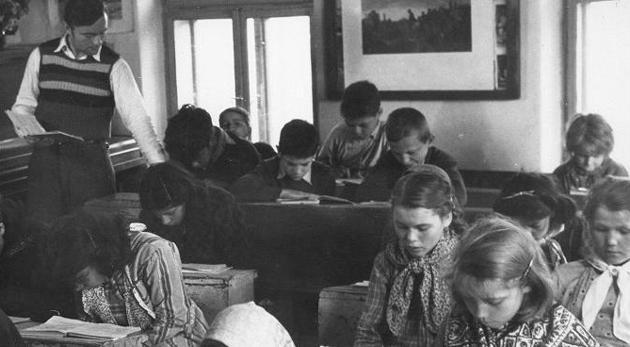Film about Czechoslovak experiment with Romani children wins best documentary from Olomouc Film Academy

A documentary film by Czech Television, "Suppressed Letters" (Zatajené dopisy) about an experimental school for Romani children in 1950s Czechoslovakia, has won the prize for best Czech popular science documentary from the Academia Film Olomouc. At the beginning of the experiment, children attended the boarding school voluntarily, but later attended after being forcibly taken away from their families on the presumption that their ties with their parents would be broken.
The jury expressed appreciation in particular for the filmmakers’ efforts to show the ambiguity of this under-researched topic while also bringing it to the public with the appropriate urgency. However, the surprisingly non-confrontational character of the film has raised more questions than it has managed to provide answers.
"Our documentary does not offer a simple schematic, it’s not black-and-white. It’s not a documentary about Romani people, to a degree it’s about all of us, about how we do our best to cope with racism and xenophobia, and also about how, by building ghettos, we create them anew," said creative producer Lenka Poláková, according to the press spokesperson for Czech Television, adding that "I am very please that the AFO jury chose this gentle, subtle film, which forces us to reflect."
Critical opinions, however, have also been voiced to the effect that the film lacks both balance and the voices of those who were forced to pay the highest price when their children were forcibly removed from their families because of the vision of cultivating "proper members of socialist society". "It is not intended as a confrontation, although the complexity and seriousness of the topic would have made that appropriate. After all, when the 90-year-old respected educator is telling a story that, for propaganda reasons, he edited back in the 1950s already, it would be appropriate to have someone in the film opposing ‘his truth’ at that moment," writes Lenka Jandáková in her review of the film for Romea.cz.
"Dědič, the main designer of this experiment, was motivated by a desire to prove to what was then a socialist society that Romani people are educable – as long as the influence of their Romani upbringing is eliminated. In his diary he called the children who had been removed from their parents ‘material for our workshop on humanity’. In the spirit of the slogan ‘everything for the idea’, Dědič did not hesitate to use both physical and psychological violence, which meant censoring, falsifying or suppressing correspondence between the children and their parents, using bureaucratic tactics to prevent parents from visiting (the school was located in the Boletice military area, which required official permission to enter), and even punching one mother in the face when she was defending the children who did not want to leave her side," Jandáková writes.
According to a press release from Czech Television, the director, Tomáš Kudrna, originally did not have film festival ambitions as part of his interest in making the documentary. "We wanted primarily to do good work under the given conditions. Be that as it may, ever since our premiere at One World there has been interest in the film from other festivals. That may be because we have succeeded in conceiving of Romani subject matter in a new way that is not cliché. The award from the Academia Film Olomouc just confirms that the topic of Romani education is more than necessary, it’s alive – it is being discussed a great deal, and ‘Suppressed Letters’ is contributing important stories and testimonies to that discussion," he said.
The so-called Květušínská School functioned during the 1950s in the Boletice military area. The subject of its experiment was Romani children and the question of whether they could be incorporated into the socialist education system.
The film follows 11-year-old Karolínka, the granddaughter of a pupil at the school, as she researches its history. She asks questions of her neighbors and relatives and gradually learns that while the pupils may have thrived academically due to the work of their teachers, many paid a high price for it which traumatizes them to this day.
The children were removed from their family environments as part of the experiment and, soon after it was created, the school began to function as a boarding school and children’s home which the children’s parents were forbidden to enter. The documentary about it was broadcast by Czech Television on the occasion of International Romani Day and is available to watch free of charge through Czech Television’s online iVysílání program.